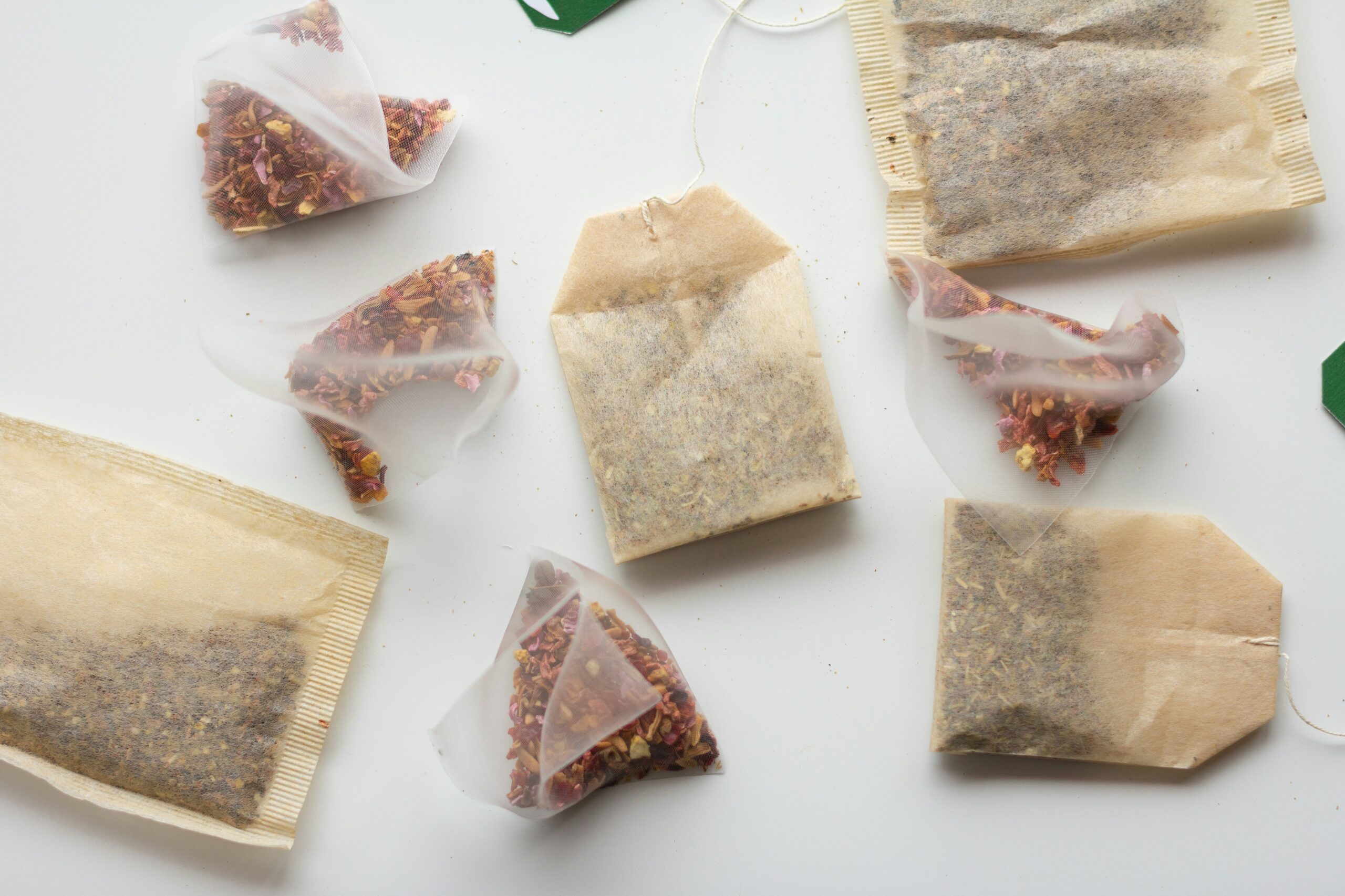
How to Store Tea and Coffee to Keep Them Fresher for Longer
For tea and coffee lovers, there’s nothing quite like the aroma and flavour of a perfectly brewed cup. Whether you

It’s no secret that tea is the most popular drink consumed in Britain today, with over 100 million cups being drunk in the UK every day. What’s more it’s estimated that a staggering 96% of this figure are brewed from tea bags – a kitchen cupboard staple in homes across the nation.
But did you know that some of the UK’s most popular brands of tea bags contain harmful plastics? Not only is this detrimental to the health of the person ingesting the tea, but its environmental impact is a major call for concern.
In a world where many of the products available to us are disposable, us consumers wonder how we can make little changes in our day-to-day lives to help make for a greener planet. A growing question is what can we do with tea bags once they’ve been used? Can you compost tea bags or should you through them away?
Get ready, as we’ll spill the ‘tea’ on what your favourite tea bag brand’s packaging is really made of and why biodegradable tea bags and compostable tea bags are the better option.
The arrival of tea in Britain in the 17th century altered the drinking habits of this nation forever when it was introduced by the East India Company from China. By the 18th century, black tea had overtaken green tea in popularity for the first time, which also accelerated the addition of milk and sugar.
It wasn’t until the 20th century that the tea bag was invented, and the nation’s tea-drinking habits were radically changed yet again. In 1908, New York tea merchant Thomas Sullivan developed the first teabags and during the 1920s they were developed for commercial production.
It is believed that the purpose of the teabag is for tea to taste its best as the leaves should be removed after the brewing period. Another benefit of the teabag is, of course, its convenience.
Although tea bags are mostly made from natural plant fibres, some tea bag brands use a kind of plastic called polypropylene to seal them and there are also brands of tea bags that use plastic, nylon and bleached paper in the bag itself.
Unfortunately, tea bags containing polypropylene aren’t totally biodegradable. Tea bags made from bleached paper, nylon and plastic are also detrimental to the health of the person ingesting the tea as billions of microplastics can leech into your beverage during the brewing process.
Plastic-free teabags usually use a bioplastic that is created from maize or cornstarch which function in the same way polypropylene does. Moving forward, consumers can expect to see more options for biodegradable tea bags made from plant-based materials like cornstarch, abaca and polylactic acid (PLA).
On their own, the materials used to make tea bags shouldn’t cause much harm to the human body. However, when dipped in boiling water, microplastics are formed and can leech into your drink.
The ingestion of microplastics is linked to a wide variety of health problems including reproductive toxicity, cancer risk and problems with metabolism.
Other compounds such as bleach, chemicals and glue are also absorbed into the water along with the tea extract. Doesn’t sound appetising, right?
While many tea bag brands continue to use toxic materials in their packaging for tea bags, some tea manufacturers are making the move to plastic-free compostable teabags, giving consumers more environmentally friendly choices. So… no, not all tea bags are safe for composting.
Pennington’s plastic-free tea bags are 100% biodegradable and can be thrown in your home compost bin as they are. Some of the environmental benefits of using plastic-free tea bags include reduced plastic waste, less contamination of water and soil and faster decomposition time.
Before you go ahead and throw your tea bag in the compost, you should always check that the product is biodegradable.
Tea is a natural, organic material that’s rich in nutrients that can lead to healthier plants. Adding compostable tea bags or loose tea leaves to compost boosts nitrogen levels which helps break down other things you’ve added and encourages decomposing bacteria.
If you’re growing plants that like acidic conditions, using tea leaves in your compost can be beneficial for your garden, but if you’re growing plants that prefer alkaline conditions, you need to be careful.
No matter what type of teabag you use, you should aim to compost as much of it as you can. To do this you should remove any non-compostable components such as the staple, adhesive or plastic bag, and compost the rest.
If you’re using Penningtons 100% plastic free, 100% biodegradable and 100% recyclable tea bags, the entire item can be composted. So not only are you ensuring that there are no nasty microplastics in your cup of tea, but you are also benefiting the environment and helping your garden thrive.
Opting for biodegradable tea bags isn’t the only way you can help the planet. Loose tea leaves are more environmentally friendly compared to tea bags as they do not require individual packaging and they generate less waste. Allowing you complete control over brewing time and strength, loose leaf tea can be brewed using a reusable infuser or strainer and they are naturally delicious!
There are many benefits to reusable travel mugs. By making the switch to reusable travel mugs, we can significantly reduce the amount of single-use coffee cups that end up in landfill and make a positive impact on the environment. Not only this, but reusable travel mugs also come in fun designs, are easy to clean, convenient on the go and can save you money in the long run.
So, the next time you reach for a brew, ask yourself ‘are these tea bags compostable?’ If not, why? Compostable tea bags provide a guilt-free and sustainable way to enjoy your favourite cup of tea. Switching to biodegradable tea bags is such a simple change that all of us can do to help the planet and reduce the amount of plastic waste that ends up in landfills.
Explore Pennington’s range of plastic free teabags.

For tea and coffee lovers, there’s nothing quite like the aroma and flavour of a perfectly brewed cup. Whether you

Finding the perfect Christmas gift can be tricky but if your loved ones adore great tea or coffee, you’re already